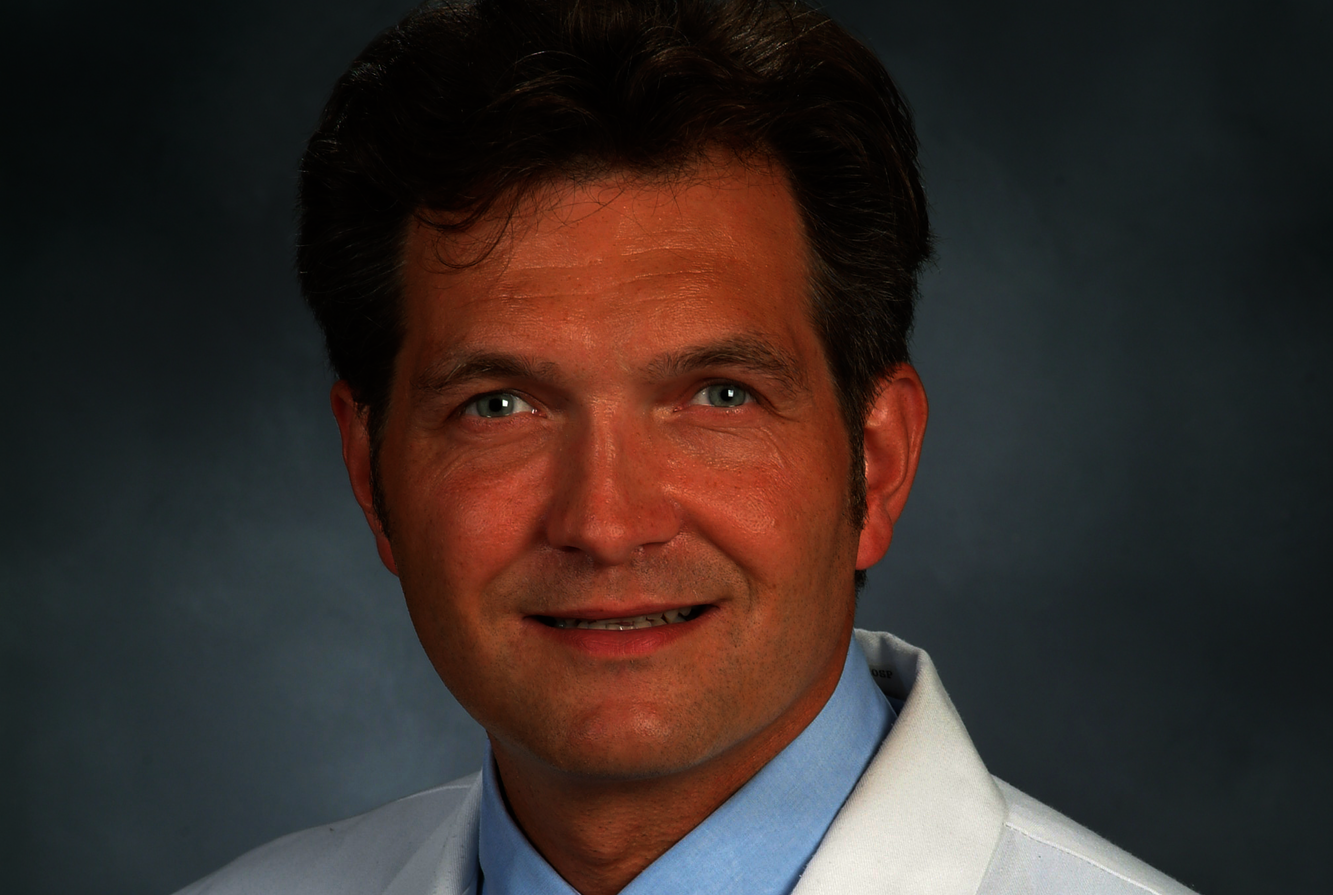Less-Invasive and Less-Costly Spine Surgery Option
NEW YORK (Dec. 17, 2007) — Each year, 40 to 60 percent of American adults suffer from chronic back pain. More than one million spine surgery procedures are performed annually, with medical costs to treat back pain approaching $24 billion per year.
With age and injury, discs located between the vertebrae in the spine might eventually wear-down—a process termed degenerative disc disease. Due to the lack of padding, vertebrae bones slip and rub together. This leads to excruciating and disabling pain, and may cause sciatica (leg pain) due to pressure on the sciatic nerve—resulting in cramping, pain and numbness along the lower back and back of the thigh.
Now, Dr. Roger Härtl, director of the spine program at NewYork-Presbyterian Hospital/Weill Cornell Medical Center and assistant professor of neurological surgery at Weill Cornell Medical College, is using a new and less-invasive procedure, developed by TranS1 Inc., to help patients recover faster and with a better quality of life. The procedure, called AxiaLIF, involves only a single small incision near the tailbone.
"AxiaLIF offers another option for minimally invasive procedures for spine-surgery and opens up avenues to give surgeons a new way to perform a procedure in a less invasive fashion," says Dr. Härtl, who is currently the only spine surgeon in Manhattan using the procedure.
To correct degenerative disc disease, spine surgeons fuse together two or more vertebrae and replace the worn disc—naturally composed of mostly cartilage and various proteins—with synthetic replacement material. However, the invasive nature of this surgery often leads to a long and painful recovery for the patient.
Now, using AxiaLIF, patients are usually released from the hospital within 24 hours following the surgery, and are able to return to their daily routines and work within two to three weeks.
The surgery takes only 45 to 60 minutes with minimal blood loss, compared to the traditional four-hour procedure. And because there is only a small incision, there is less pain for the patient, because the area has fewer pain receptors.
More traditional surgeries call for large incisions in the back or abdomen. These invasive techniques often require complicated dissection of muscles, nerves and even organs, so that the surgeon can navigate to the affected area. Additional vascular surgeons are called in to perform this part of the procedure, which can take hours, even before a spine surgeon begins.
Because of these invasive measures, patients are at a much higher risk for greater blood loss, and nerve and muscle injury, which means more time in recovery with physical therapists to get back to doing normal-day activities. There are also other concerns for patients.
In males, for instance, surgery in the abdomen risks damage to the nerves controlling sexual function, which may lead to premature ejaculation, explains Dr. Härtl. But risks like these are now avoidable.
"With the less invasive technique, I can do the same surgery, but access the area with less trauma to muscles, nerves and surrounding tissue," says Dr. Härtl.
To perform the surgery, a one-inch incision is made at the tailbone. Under X-ray guidance, Dr. Härtl locates and removes the damaged portion of the disc—most often affected is the lumbar region, between the sacral (S1) and lumbar (L5) vertebrae—and then injects synthetic material to rebuild the disc. A screw is then inserted to distract and stabilize the vertebrae, and, finally, the incision is closed. Dr. Härtl cautions that, depending on the injury, this surgery may not be right for each patient, but may be combined with other techniques to reach a better outcome.
The AxiaLIF procedure is estimated to be less costly than open surgeries. The main savings are in the dramatic decrease in operating-room time, length of stay, less need for post-surgical pain medication and more rapid rehabilitation.
"With this new surgery, spine surgeons can offer patients more options," says Dr. Härtl. "We used to have only one or two surgeries to choose from, but now we have a variety of techniques to tailor the treatment for each person."
For more information, patients may call (866) NYP-NEWS.
NewYork-Presbyterian Hospital/Weill Cornell Medical Center
NewYork-Presbyterian Hospital/Weill Cornell Medical Center, located in New York City, is one of the leading academic medical centers in the world, comprising the teaching hospital NewYork-Presbyterian and Weill Cornell Medical College, the medical school of Cornell University. NewYork-Presbyterian/Weill Cornell provides state-of-the-art inpatient, ambulatory and preventive care in all areas of medicine, and is committed to excellence in patient care, education, research and community service. Weill Cornell physician-scientists have been responsible for many medical advances—from the development of the Pap test for cervical cancer to the synthesis of penicillin, the first successful embryo-biopsy pregnancy and birth in the U.S., the first clinical trial for gene therapy for Parkinson's disease, the first indication of bone marrow's critical role in tumor growth, and, most recently, the world's first successful use of deep brain stimulation to treat a minimally-conscious brain-injured patient. NewYork-Presbyterian, which is ranked sixth on the U.S.News & World Report list of top hospitals, also comprises NewYork-Presbyterian Hospital/Columbia University Medical Center, Morgan Stanley Children's Hospital of NewYork-Presbyterian, NewYork-Presbyterian Hospital/Westchester Division and NewYork-Presbyterian Hospital/The Allen Pavilion. In its commitment to global health and education, Weill Cornell has a strong presence in places such as Qatar, Tanzania, Haiti, Brazil, Austria and Turkey. Through the historic Weill Cornell Medical College in Qatar, Cornell University is the first in the U.S. to offer a M.D. degree overseas. For more information, visit www.nyp.org and www.med.cornell.edu.
Andrew Klein
ank2017@med.cornell.edu

